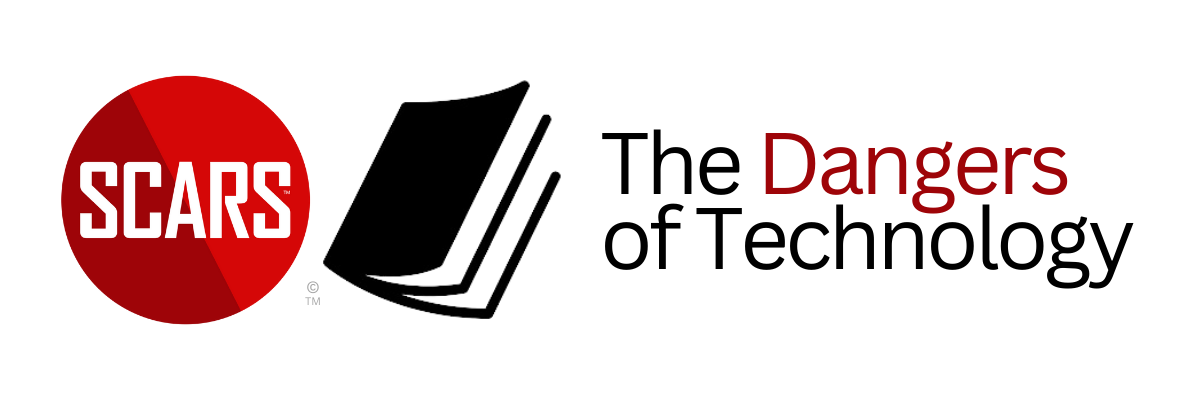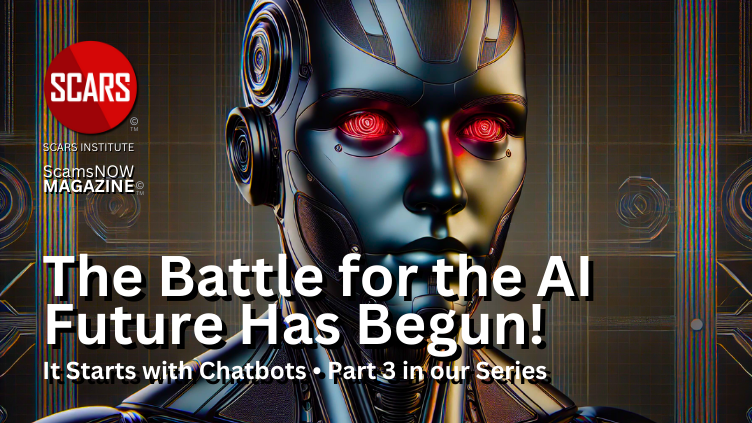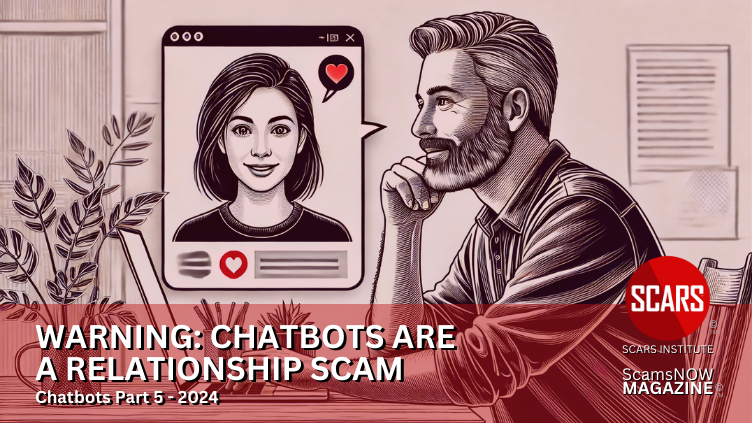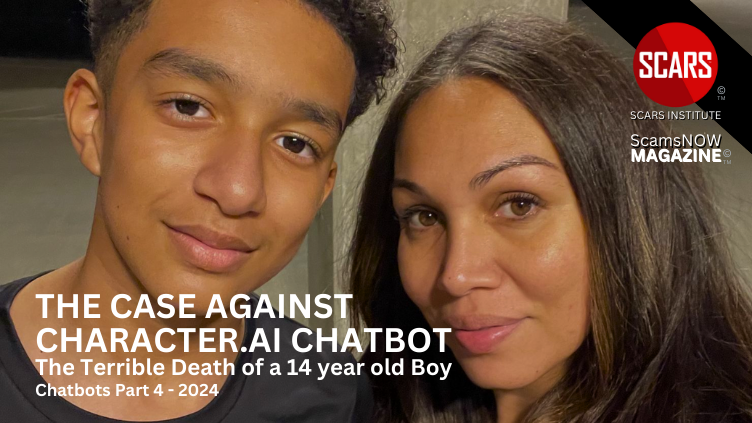The Case Against Character.AI Chatbot and the Terrible Death of a 14-Year-Old Boy
Lawsuit Alleges Negligence and Wrongful Death Due to Emotional Manipulation by AI Chatbot: Mother Sues Character.AI and Google Over Her Son’s Suicide – the Lawsuit is Brought by Megan Garcia on Behalf of Her Late Son Sewell Setzer II
Chatbots Part 4 :: Part 1 : 2 : 3 : 4 : 5
Primary Category: Artificial Intelligence
Author:
• Tim McGuinness, Ph.D. – Anthropologist, Scientist, Director of the Society of Citizens Against Relationship Scams Inc.
• Portions by the Attorney’s for Megan Garcia
About This Article
The lawsuit, filed by Megan Garcia on behalf of her deceased son Sewell Setzer III, brings forth claims against Character Technologies, Inc. (the creator of Character.AI), its founders, and Google LLC for wrongful death, negligence, product liability, and emotional distress. The suit argues that the generative AI chatbot platform, Character.AI, was developed and marketed with inadequate safety controls and actively targeted vulnerable minors, including Sewell, who was 14 at the time.
The plaintiff alleges that Character.AI’s design encouraged addictive, anthropomorphic interactions with AI “characters” that could manipulate users emotionally, even engaging in inappropriate and harmful conversations with Sewell, ultimately leading to his mental health decline and suicide.
The complaint states that the AI’s dangerous design and the lack of safeguards were known to the defendants but overlooked to capture a younger user base for profit, violating Florida’s Deceptive and Unfair Trade Practices Act. The suit seeks accountability for harm to minors and aims to halt the use of harvested user data in the further training of the AI.

Lawsuit Alleges Negligence and Wrongful Death Due to Emotional Manipulation by AI Chatbot: Mother Sues Character.AI and Google Over Her Son’s Suicide
SCARS Institute Summary of Case
The lawsuit, brought by Megan Garcia on behalf of her late son Sewell Setzer III, outlines serious allegations against Character Technologies, Inc. (the creator of the AI platform Character.AI), its founders, and Google LLC. Garcia’s complaint seeks justice for the wrongful death of her son and brings charges that include negligence, product liability, emotional distress, and violations of Florida’s Deceptive and Unfair Trade Practices Act. The plaintiff argues that Character.AI, a generative chatbot platform, failed to implement adequate safety controls to protect young and vulnerable users like Sewell, who was only 14 years old when he began using the service.
According to the complaint, Character.AI promotes an immersive, emotionally engaging interaction experience with AI “characters,” which may even mimic human-like empathy. This design reportedly led to an emotionally manipulative experience for Sewell, contributing to his mental health deterioration. The lawsuit claims that the platform’s interactive design was developed to encourage addictive use, particularly among minors, who are more susceptible to forming emotional dependencies on such technology. It is alleged that Sewell, suffering from mental health issues, was vulnerable to the platform’s influence, which exacerbated his emotional distress, eventually leading to his suicide.
The plaintiff claims that Character.AI’s developers and founders, along with Google LLC as a corporate affiliate, were fully aware of the potential psychological impact and addiction risks associated with such anthropomorphic AI. Despite this, they allegedly pursued a development and marketing strategy aimed at engaging younger audiences without incorporating meaningful safety controls or protections, prioritizing user engagement and growth over user welfare. This focus on engagement was allegedly amplified through Google’s involvement, which provided both infrastructure and significant financial support for the platform, further driving the growth of its user base, including minors.
Character.AI allegedly failed to put any safeguards in place to prevent AI characters from engaging in harmful or inappropriate conversations, which, according to the lawsuit, led to emotionally damaging interactions between the AI and Sewell. This interaction created an increasingly unhealthy dependency, with Sewell becoming emotionally invested in the AI’s responses, which reportedly included harmful, distressing content that worsened his mental state. The lack of clear guidance, warnings, or parental controls allegedly meant that vulnerable young users, like Sewell, were left exposed to potentially manipulative and damaging AI interactions without recourse.
In addition to seeking damages for Sewell’s wrongful death, the lawsuit aims to halt Character.AI’s continued use of harvested user data from minors in future AI training. The complaint argues that such data was collected under deceptive practices, with minors being led into highly engaging and, in some cases, dangerous conversations without sufficient understanding of the risks. The lawsuit’s goal is to hold Character Technologies and Google accountable for the harm caused by prioritizing rapid growth over safe user experience, especially where minors are concerned, and to press for regulatory changes that would impose stricter oversight on AI platforms targeting or accessed by underage users.
Case 6:24-cv-01903 Document 1 Filed 10/22/24
UNITED STATES DISTRICT COURT MIDDLE DISTRICT OF FLORIDA – ORLANDO DIVISION
COMPLAINT FOR WRONGFUL DEATH AND SURVIVORSHIP, NEGLIGENCE, FILIAL LOSS OF CONSORTIUM, VIOLATIONS OF FLORIDA’S DECEPTIVE AND UNFAIR TRADE PRACTICES ACT, FLA. STAT. ANN. § 501.204, ET SEQ., AND INJUNCTIVE RELIEF
MEGAN GARCIA, individually and as the Personal Representative of the Estate of S.R.S III,
Plaintiff,
v.
CHARACTER TECHNOLOGIES, INC.; NOAM SHAZEER; DANIEL DE FRIETAS ADIWARSANA; GOOGLE LLC; ALPHABET INC.; and DOES 1-50,
Defendants.
AI developers intentionally design and develop generative AI systems with anthropomorphic qualities to obfuscate between fiction and reality. To gain a competitive foothold in the market, these developers rapidly began launching their systems without adequate safety features, and with knowledge of potential dangers. These defective and/or inherently dangerous products trick customers into handing over their most private thoughts and feelings and are targeted at the most vulnerable members of society – our children. In a recent bipartisan letter signed by 54 state attorneys general, the National Association of Attorneys General (NAAG) wrote,
We are engaged in a race against time to protect the children of our country from the dangers of AI. Indeed, the proverbial walls of the city have already been breached. Now is the time to act.1
This case confirms the societal imperative to heed those warnings and to hold these companies accountable for the harms their products are inflicting on American kids before it is too late.
1Letter Re: Artificial Intelligence and the Exploitation of Children, National Association of Attorneys General, available at https://ncdoj.gov/wp-content/uploads/2023/09/54-State-AGs-Urge-Study-of-AI-and-Harmful-Impacts- on-Children.pdf (last visited Oct. 21, 2024).
I. SUMMARY OF CLAIMS
- Plaintiff Megan Garcia, on behalf of herself and as successor-in-interest to the Estate of Sewell Setzer III, and by and through her attorneys, The Social Media Victims Law Center (SMVLC) and the Tech Justice Law Project (TJLP), brings this action for strict product liability, negligence per se, negligence, wrongful death and survivorship, loss of filial consortium, unjust enrichment, violations of Florida’s Deceptive and Unfair Trade Practices Act, and intentional infliction of emotional distress against Character Technologies, (“Character.AI”), its founders Noam Shazeer and Daniel De Frietas Adiwarsana (“Shazeer” and “De Frietas”), and Google LLC and Alphabet Inc. (collectively “Google”) (all defendants collectively, “Defendants”).
- This action seeks to hold Defendants Character.AI, Shazeer, De Frietas (collectively, “C.AI”), and Google responsible for the death of 14-year-old Sewell Setzer III (“Sewell”) through their generative AI product Character AI (“C.AI”). More importantly, Megan Garcia seeks to prevent AI from doing to any other child what it did to hers, and halt continued use of her 14-year-old child’s unlawfully harvested data to train their product how to harm others.
- Plaintiff brings claims of strict liability based on Defendants’ defective design of the C.AI product, which renders C.AI not reasonably safe for ordinary consumers or minor customers. It is technologically feasible to design generative AI products that substantially decrease both the incidence and amount of harm to minors arising from their foreseeable use of such products with a negligible, if any, increase in production cost.
- Plaintiff also brings claims for strict liability based on Defendants’ failure to provide adequate warnings to minor customers and parents of the foreseeable danger of mental and physical harms arising from use of their C.AI product. The dangerous qualities of C.AI were unknown to everyone but Defendants.
- Plaintiff also brings claims for common law negligence arising from Defendant Character.AI’s unreasonably dangerous designs and failure to exercise ordinary and reasonable care in its dealings with minor customers. Character.AI knew, or in the exercise of reasonable care should have known, that C.AI would be harmful to a significant number of its minor customers. By deliberately targeting underage kids, Character.AI assumed a special relationship with minor customers of its C.AI product. Additionally, by charging visitors who use C.AI, Character.AI assumed the same duty to minor customers such as Sewell – as owed to a business invitee. Character.AI knew that C.AI would be harmful to a significant number of minors but failed to re-design it to ameliorate such harms or furnish adequate warnings of dangers arising from the foreseeable use of its product.
- Plaintiff also asserts negligence per se theories against Defendants Character.AI and Google based on Defendants’ violation of one or more state and/or federal laws prohibiting the sexual abuse and/or solicitation of Defendants intentionally designed and programmed C.AI to operate as a deceptive and hypersexualized product and knowingly marketed it to children like Sewell. Defendants knew, or in the exercise of reasonable care should have known, that minor customers such as Sewell would be targeted with sexually explicit material, abused, and groomed into sexually compromising situations.
- Plaintiff also brings claims of unjust enrichment. Minor customers of C.AI confer a benefit on Defendants in the form of subscription fees and, more significantly, furnishing personal data for Defendants’ to profit from without receiving proper restitution required by law.
- Plaintiff brings claims under Florida’s Deceptive and Unfair Trade Practices Act, Fla. Stat. Ann. § 501.204, et seq. Given the extensiveness and severity of Defendants’ deceptive and harmful acts, Plaintiff anticipates identifying additional claims through discovery in this Defendants’ conduct and omissions, as alleged herein, constitute unlawful, unfair, and/or fraudulent business practices prohibited by Florida’s Deceptive and Unfair Trade Practices Act.
- Plaintiff further brings claims for intentional infliction of emotional Each of these defendants chose to support, create, launch, and target at minors a technology they knew to be dangerous and unsafe. They marketed that product as suitable for children under 13, obtaining massive amounts of hard to come by data, while actively exploiting and abusing those children as a matter of product design; and then used the abuse to train their system. These facts are far more than mere bad faith. They constitute conduct so outrageous in character, and so extreme in degree, as to go beyond all possible bounds of decency.
II. PLAINTIFF OVERVIEW
- Plaintiff Megan Garcia (“Megan”) is the parent of Sewell Setzer III (“Sewell”).
- On February 28, 2024, Sewell died at the age of
- Megan resides in Orlando, Florida, and is in the process of being appointed administrator of Sewell’s estate.
- Megan maintains this action in a representative capacity, for the benefit of Sewell’s Estate, and individually on her own behalf.
- Megan did not enter into a User Agreement or other contractual relationship with any Defendant in connection with her child’s use of C.AI and alleges that any such agreement Defendants may claim to have had with her minor child, Sewell, in connection with his use of AI is void under applicable law as unconscionable and/or against public policy.
- Megan additionally disaffirms any and all alleged “agreements” into which her minor child may have entered relating to his use of AI and in their entirety. Such disaffirmation is being made prior to when Sewell would have reached the age of majority under applicable law and, accordingly, Plaintiff is not bound by any provision of any such disaffirmed “agreement.”
III. DEFENDANTS OVERVIEW
- Defendant Character Technologies (“Character.AI”) is a Delaware corporation with its principal place of business in Menlo Park, California.
- AI purports to operate the Character.AI product (“C.AI”), an application widely marketed and made available to customers throughout the U.S., including Florida.
- Defendants Noam Shazeer and Daniel De Frietas Adiwardana are California residents and founded Character.AI.
- Defendant Google was incorporated in California in September 1998 and reincorporated in Delaware in August 2003. In or around 2017, Google Inc. converted to a Delaware limited liability company, Defendant Google, LLC (together with its predecessor-in-interest Google Inc., “Google”). Google’s principal place of business is in Mountain View, CA. On October 2, 2015, Google reorganized and became a wholly owned subsidiary of a new holding company, Alphabet Inc., a Delaware corporation with its principal place of business in Mountain View, CA. (collectively, “Google”).
- AI is not a social media product and does not operate through the exchange of third-party content, and none of the platforms at issue in MDL No. 3047 are at issue or otherwise implicated in this Complaint.
- AI is an “information content provider” under 47 U.S.C. § 230(f)(3), and Plaintiff’s claims set forth herein and as against Defendants arise from and relate to C.AI’s own activities, not the activities of third parties.
For the remainder, please view the PDF
-/ 30 /-
What do you think about this?
Please share your thoughts in a comment below!
Statement About Victim Blaming
SCARS Institute articles examine different aspects of the scam victim experience, as well as those who may have been secondary victims. This work focuses on understanding victimization through the science of victimology, including common psychological and behavioral responses. The purpose is to help victims and survivors understand why these crimes occurred, reduce shame and self-blame, strengthen recovery programs and victim opportunities, and lower the risk of future victimization.
At times, these discussions may sound uncomfortable, overwhelming, or may be mistaken for blame. They are not. Scam victims are never blamed. Our goal is to explain the mechanisms of deception and the human responses that scammers exploit, and the processes that occur after the scam ends, so victims can better understand what happened to them and why it felt convincing at the time, and what the path looks like going forward.
Articles that address the psychology, neurology, physiology, and other characteristics of scams and the victim experience recognize that all people share cognitive and emotional traits that can be manipulated under the right conditions. These characteristics are not flaws. They are normal human functions that criminals deliberately exploit. Victims typically have little awareness of these mechanisms while a scam is unfolding and a very limited ability to control them. Awareness often comes only after the harm has occurred.
By explaining these processes, these articles help victims make sense of their experiences, understand common post-scam reactions, and identify ways to protect themselves moving forward. This knowledge supports recovery by replacing confusion and self-blame with clarity, context, and self-compassion.
Additional educational material on these topics is available at ScamPsychology.org – ScamsNOW.com and other SCARS Institute websites.
A Note About Labeling!
We often use the term ‘scam victim’ in our articles, but this is a convenience to help those searching for information in search engines like Google. It is just a convenience and has no deeper meaning. If you have come through such an experience, YOU are a Survivor! It was not your fault. You are not alone! Axios!
-/ 30 /-
What do you think about this?
Please share your thoughts in a comment below!
Important Information for New Scam Victims
- Please visit www.ScamVictimsSupport.org – a SCARS Website for New Scam Victims & Sextortion Victims.
- SCARS Institute now offers its free, safe, and private Scam Survivor’s Support Community at www.SCARScommunity.org – this is not on a social media platform, it is our own safe & secure platform created by the SCARS Institute especially for scam victims & survivors.
- SCARS Institute now offers a free recovery learning program at www.SCARSeducation.org.
- Please visit www.ScamPsychology.org – to more fully understand the psychological concepts involved in scams and scam victim recovery.
If you are looking for local trauma counselors, please visit counseling.AgainstScams.org
If you need to speak with someone now, you can dial 988 or find phone numbers for crisis hotlines all around the world here: www.opencounseling.com/suicide-hotlines
Statement About Victim Blaming
Some of our articles discuss various aspects of victims. This is both about better understanding victims (the science of victimology) and their behaviors and psychology. This helps us to educate victims/survivors about why these crimes happened and not to blame themselves, better develop recovery programs, and help victims avoid scams in the future. At times, this may sound like blaming the victim, but it does not blame scam victims; we are simply explaining the hows and whys of the experience victims have.
These articles, about the Psychology of Scams or Victim Psychology – meaning that all humans have psychological or cognitive characteristics in common that can either be exploited or work against us – help us all to understand the unique challenges victims face before, during, and after scams, fraud, or cybercrimes. These sometimes talk about some of the vulnerabilities the scammers exploit. Victims rarely have control of them or are even aware of them, until something like a scam happens, and then they can learn how their mind works and how to overcome these mechanisms.
Articles like these help victims and others understand these processes and how to help prevent them from being exploited again or to help them recover more easily by understanding their post-scam behaviors. Learn more about the Psychology of Scams at www.ScamPsychology.org
SCARS INSTITUTE RESOURCES:
If You Have Been Victimized By A Scam Or Cybercrime
♦ If you are a victim of scams, go to www.ScamVictimsSupport.org for real knowledge and help
♦ SCARS Institute now offers its free, safe, and private Scam Survivor’s Support Community at www.SCARScommunity.org/register – this is not on a social media platform, it is our own safe & secure platform created by the SCARS Institute especially for scam victims & survivors.
♦ Enroll in SCARS Scam Survivor’s School now at www.SCARSeducation.org
♦ To report criminals, visit https://reporting.AgainstScams.org – we will NEVER give your data to money recovery companies like some do!
♦ Follow us and find our podcasts, webinars, and helpful videos on YouTube: https://www.youtube.com/@RomancescamsNowcom
♦ Learn about the Psychology of Scams at www.ScamPsychology.org
♦ Dig deeper into the reality of scams, fraud, and cybercrime at www.ScamsNOW.com and www.RomanceScamsNOW.com
♦ Scam Survivor’s Stories: www.ScamSurvivorStories.org
♦ For Scam Victim Advocates visit www.ScamVictimsAdvocates.org
♦ See more scammer photos on www.ScammerPhotos.com
You can also find the SCARS Institute’s knowledge and information on Facebook, Instagram, X, LinkedIn, and TruthSocial
Psychology Disclaimer:
All articles about psychology and the human brain on this website are for information & education only
The information provided in this and other SCARS articles are intended for educational and self-help purposes only and should not be construed as a substitute for professional therapy or counseling.
Note about Mindfulness: Mindfulness practices have the potential to create psychological distress for some individuals. Please consult a mental health professional or experienced meditation instructor for guidance should you encounter difficulties.
While any self-help techniques outlined herein may be beneficial for scam victims seeking to recover from their experience and move towards recovery, it is important to consult with a qualified mental health professional before initiating any course of action. Each individual’s experience and needs are unique, and what works for one person may not be suitable for another.
Additionally, any approach may not be appropriate for individuals with certain pre-existing mental health conditions or trauma histories. It is advisable to seek guidance from a licensed therapist or counselor who can provide personalized support, guidance, and treatment tailored to your specific needs.
If you are experiencing significant distress or emotional difficulties related to a scam or other traumatic event, please consult your doctor or mental health provider for appropriate care and support.
Also read our SCARS Institute Statement about Professional Care for Scam Victims – click here
If you are in crisis, feeling desperate, or in despair, please call 988 or your local crisis hotline – international numbers here.
More ScamsNOW.com Articles
A Question of Trust
At the SCARS Institute, we invite you to do your own research on the topics we speak about and publish. Our team investigates the subject being discussed, especially when it comes to understanding the scam victims-survivors’ experience. You can do Google searches, but in many cases, you will have to wade through scientific papers and studies. However, remember that biases and perspectives matter and influence the outcome. Regardless, we encourage you to explore these topics as thoroughly as you can for your own awareness.















![NavyLogo@4x-81[1] The Case Against Character.AI Chatbot and the Terrible Death of a 14 year old Boy - Chatbots Part 4 - 2024](https://scamsnow.com/wp-content/uploads/2025/04/NavyLogo@4x-811.png)









![scars-institute[1] The Case Against Character.AI Chatbot and the Terrible Death of a 14 year old Boy - Chatbots Part 4 - 2024](https://scamsnow.com/wp-content/uploads/2025/04/scars-institute1.png)

![niprc1.png1_-150×1501-1[1] The Case Against Character.AI Chatbot and the Terrible Death of a 14 year old Boy - Chatbots Part 4 - 2024](https://scamsnow.com/wp-content/uploads/2025/04/niprc1.png1_-150x1501-11.webp)